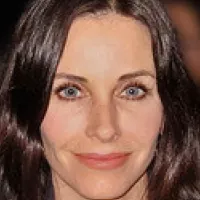Norway, officially the Kingdom of Norway, is a Nordic country located on the Scandinavian Peninsula in Northern Europe. It also includes the Arctic island Jan Mayen and the Svalbard archipelago, with dependencies in the Subantarctic and claims in Antarctica. With a population of about 5.6 million, Norway covers 385,207 square kilometers. Oslo is its capital and largest city. Norway borders Sweden to the east, and Finland and Russia to the northeast, and features a long coastline along several seas.
1902: Abolishment of Death Penalty
In 1902, Norway abolished the death penalty for regular criminal acts.
1903: Nobel Prize in Literature: Bjørnstjerne Bjørnson
In 1903, Bjørnstjerne Bjørnson was awarded the Nobel Prize in Literature, marking a significant achievement for Norwegian literature.
June 1905: Peaceful Separation from Sweden
In June 1905, Norway peacefully separated from Sweden, with Christian Michelsen playing a central role.
1907: Christian Michelsen's Term as Prime Minister Ends
In 1907, Christian Michelsen's term as Prime Minister of Norway ended. He had served since 1905.
1913: Universal Suffrage for Women
In 1913, all women were granted universal suffrage in Norway.
1920: Nobel Prize in Literature: Knut Hamsun
In 1920, Knut Hamsun was awarded the Nobel Prize in Literature for his book Markens grøde ("Growth of the Soil"), recognizing his contribution to literature.
1928: Nobel Prize in Literature: Sigrid Undset
In 1928, Sigrid Undset, known for her work Kristin Lavransdatter, was awarded the Nobel Prize in Literature, marking another significant achievement for Norwegian literature.
1938: FIFA World Cup participation
In 1938, the men's national football team participated in the FIFA World Cup.
April 1940: Invasion by German Forces
On 9 April 1940, Norway was invaded by German forces during the Second World War despite proclaiming neutrality.
June 1940: Norwegians Join Allied Forces
In June 1940, following their king to Britain, a small group of Norwegians, including naval personnel and aircraft, joined the Allied forces.
1945: Labour Party Majority in Parliament
From 1945, the Labour Party held an absolute majority in the parliament and implemented Keynesian economic policies.
1948: Distancing from Communism
In 1948, the Labour Party distanced itself from Communists and strengthened ties with the US.
April 1949: Founding member of NATO
On April 4, 1949, Norway became one of the founding nations of the North Atlantic Treaty Organization (NATO).
1949: Founding Member of NATO
In 1949, Norway became a founding member of the North Atlantic Treaty Organization (NATO).
1949: Rationing of Dairy Products Lifted
In 1949, the rationing of dairy products was lifted in Norway.
1950: Academy Award for Kon-Tiki
In 1950, the Norwegian documentary film Kon-Tiki won an Academy Award, marking a significant achievement in Norwegian cinema.
1960: First Participation in Eurovision
In 1960, Norway first participated in the Eurovision Song Contest, marking the beginning of its long-standing involvement in the competition.
1960: Price Controls and Rationing End
In 1960, price controls and rationing of housing and cars ended in Norway.
1962: Application for EU Accession
In 1962, Norway issued an application for accession to the European Union (EU) and its predecessors.
1962: Labour Party Majority Ends
In 1962, the Labour Party no longer held an absolute majority in the parliament.
1966: First Oil Wells Drilled
Between 1966 and 2013, Norwegian companies drilled 5,085 oil wells, mostly in the North Sea.
1967: Application for EU Accession
In 1967, Norway issued an application for accession to the European Union (EU) and its predecessors.
1967: Oil Discovered at Balder Field
In 1967, oil was discovered at the small Balder field, although production began much later.
1969: Petroleum Resources Discovered at Ekofisk Field
In 1969, the Phillips Petroleum Company discovered petroleum resources at the Ekofisk field west of Norway.
1972: Rejection of EU Membership
By referendum in 1972, Norwegians rejected proposals to join the European Union (EU).
1972: Declined to Join the European Union
In 1972, Norway declined to join the European Union after a referendum.
1972: Rejection of EU Accession Treaty
In 1972, the Norwegian electorate rejected the treaties of accession in a referendum.
1973: Statoil Founded
In 1973, the Norwegian government founded the state oil company Statoil (now Equinor).
1975: Peak in Industrial Workers
Around 1975, the proportion and number of workers in industry peaked in Norway.
1975: Release of The Pinchcliffe Grand Prix
In 1975, The Pinchcliffe Grand Prix, an animated feature film directed by Ivo Caprino, was released and became the most widely seen Norwegian film of all time.
1979: Abolishment of Death Penalty for High Treason
In 1979, Norway abolished the death penalty for high treason in war and war-crimes.
1980: Summer Olympics boycott
In 1980, Norway did not participate in the Summer Olympics in Moscow, joining the American-led boycott.
1981: Conservative Party Government
In 1981, a Conservative Party government led by Kåre Willoch took power, implementing economic policies to stimulate the economy.
1985: Bobbysocks's Eurovision Win
In 1985, Norway won the Eurovision Song Contest for the first time with Bobbysocks, marking a historic victory for the country.
1987: Oscar Nomination for Pathfinder
In 1987, Nils Gaup's Pathfinder, a film about the Sámi, was nominated for an Oscar, recognizing its quality and storytelling.
1987: UEFA European Women's Championship title
In 1987, the women's team won a UEFA European Women's Championship title.
1989: ILO-Convention on Indigenous People
In 1989, the UN recommended the ILO-convention on indigenous people.
1990: Recognition of ILO-Convention
In 1990, Norway was the first country to recognise ILO-convention 1989 on indigenous people recommended by the UN.
1990: Constitutional Amendment
In 1990, the Norwegian constitution was amended to grant absolute primogeniture to the Norwegian throne.
1991: Harald V Ascended to the Throne
In 1991, Harald V of the House of Schleswig-Holstein-Sonderburg-Glücksburg ascended to the Norwegian throne.
1991: Start of Climate Normals Collection
In 1991, the start of the Climate Normals collection used to assess the tundra/alpine/polar climate (ET).
1991: Start of Precipitation Data Collection
In 1991, the start of the precipitation data collection used to measure Saltdal Municipality as the driest place.
1992: Establishment of Musikkens Dag
In 1992, Fredrik Carl Størmer established the music festival "Musikkens Dag" in Oslo, gathering thousands of people and artists in the streets.
1992: Application for EU Accession
In 1992, Norway issued an application for accession to the European Union (EU) and its predecessors.
1993: Legalization of Civil Union
In 1993, Norway became the second country to legalise civil union partnerships for same-sex couples.
1994: Membership in the European Economic Area
After the 1994 referendum, Norway maintained its membership in the European Economic Area (EEA), granting the country access to the internal market of the Union.
1994: Rejection of EU Membership
By referendum in 1994, Norwegians rejected proposals to join the European Union (EU).
1994: Declined to Join the European Union Again
In 1994, Norway again declined to join the European Union after another referendum.
1994: Rejection of EU Accession Treaty
In 1994, the Norwegian electorate rejected the treaties of accession in a referendum.
1994: FIFA World Cup participation
In 1994, the men's national football team participated in the FIFA World Cup.
1995: Secret Garden's Eurovision Win
In 1995, Secret Garden won the Eurovision Song Contest for Norway, adding another victory to the country's record in the competition.
1995: Establishment of Sovereign Wealth Fund
In 1995, the Norwegian government established the sovereign wealth fund ("Government Pension Fund – Global") to be funded with oil revenues.
1996: Formation of Åsatrufellesskapet Bifrost
In 1996, the Norwegian Åsatrufellesskapet Bifrost formed, reflecting the revival of pagan religious practises.
1997: Oscar Nomination for The Other Side of Sunday
In 1997, Berit Nesheim's The Other Side of Sunday was nominated for an Oscar, showcasing Norwegian filmmaking talent.
1998: FIFA World Cup participation
In 1998, the men's national football team participated in the FIFA World Cup.
1998: Women's Handball European Championship
In 1998, the women's handball national team won the European Championship.
1999: Formation of Foreningen Forn Sed
In 1999, Foreningen Forn Sed was formed and later recognized by the Norwegian government, highlighting the official recognition of pagan religious organizations.
1999: Oil Production Begins at Balder Field
In 1999, oil production began at the Balder field, which had been discovered in 1967.
1999: Women's Handball World Championship
In 1999, the women's handball national team won the World Championship.
2000: Olympic Football Tournament win
In 2000, the women's national team won the Olympic Football Tournament.
2000: Annual charge for public healthcare
Public healthcare in Norway is free (after an annual charge of around 2000 kroner for those over 16).
2004: Women's Handball European Championship
In 2004, the women's handball national team won the European Championship.
2005: Jens Stoltenberg Prime Minister
From 2005, Jens Stoltenberg led Norway as prime minister for eight years.
2005: Labour Party in Power
In 2005, the Labour Party came into power in a Red–Green Coalition, remaining in power for several years.
2006: Fastest-Growing Religious Communities
From 2006 to 2011, Eastern Orthodox Christianity and Oriental Orthodox Christianity were the fastest-growing religious communities in Norway, growing by 80%.
2006: Norwegian Americans
In 2006, almost 4.7 million people in the United States identified as Norwegian Americans, according to the US Census Bureau, exceeding the ethnic Norwegian population in Norway itself.
2006: Women's Handball European Championship
In 2006, the women's handball national team won the European Championship.
2007: Passengers Through Norwegian Airports
In 2007, a total of 41,089,675 passengers passed through Norwegian airports, of whom 13,397,458 were international.
2007: State Ownership in Equinor
In 2007, the Norwegian government had approximately 62% ownership in Equinor.
2007: Loss at European Court of Human Rights
In 2007, the state's loss in a battle at the European Court of Human Rights at Strasbourg led to a decreased focus on Christianity in public schools.
2008: Women's Handball Summer Olympics Championship
In 2008, the women's handball national team won the Summer Olympics championship.
January 2009: Legalization of Same-Sex Marriage
On January 1, 2009, Norway became the sixth country to legalise same-sex marriage.
2009: Mobilisation Plans
According to 2009 mobilisation plans, full mobilisation produces approximately 83,000 combatant personnel.
2009: Alexander Rybak's Eurovision Win
In 2009, Alexander Rybak won the Eurovision Song Contest with his song Fairytale, which set a record for the biggest margin of victory in Eurovision history.
2009: UNDP Human Development Index Ranking
In 2009, Norway reclaimed first place in the world in the UNDP Human Development Index (HDI).
2009: Christian Denominations
In 2009, other Christian denominations in Norway totaled about 4.9% of the population, with the Roman Catholic Church being the largest, with 83,000 members.
2010: Intergenerational Earnings Elasticity Study
According to a 2010 study, the OECD ranks Norway third in intergenerational earnings elasticity.
2010: Eurobarometer Poll on Beliefs
According to the 2010 Eurobarometer Poll, 22% of Norwegian citizens believed in God, 44% believed in some sort of spirit or life force, and 29% did not believe in any spirit, God, or life force.
2010: Religious Affiliation
In 2010, 10% of the population of Norway was religiously unaffiliated, while another 9% were members of religious communities outside the Church of Norway.
2010: Endangered or Vulnerable Species Listed
In 2010, 2,398 species were listed as endangered or vulnerable in Norway.
2010: Women's Handball European Championship
In 2010, the women's handball national team won the European Championship.
2010: Democracy Index Ranking
Since 2010, Norway has been classified as the world's most democratic country by the Democracy Index.
2010: Red List of Species
The red list of 2010 encompasses 4,599 species.
2011: Fastest-Growing Religious Communities
From 2006 to 2011, the fastest-growing religions in Norway were Eastern Orthodox Christianity and Oriental Orthodox Christianity (80%), Roman Catholicism (78.7%), Hinduism (59.6%), Islam (48.1%), and Buddhism (46.7%).
2011: State Revenues from Petroleum
In 2011, 28% of state revenues were generated from the petroleum industry.
2011: Hindu Adherents in Norway
In 2011, Hinduism had slightly more than 5,900 adherents in Norway, which is 1% of non-Lutheran Norwegians, introduced by Indian immigrants.
2011: Terrorist Attacks in Norway
In 2011, Norway experienced two terrorist attacks by Anders Behring Breivik in Oslo and Utøya, resulting in 77 deaths and 319 wounded.
2011: Membership of Åsatrufellesskapet Bifrost
In 2011, the Norwegian Åsatrufellesskapet Bifrost had about 300 members, indicating the growth of the pagan religious community.
2011: Women's Handball World Championship
In 2011, the women's handball national team won the World Championship.
May 2012: Church of Norway Autonomy
On May 21, 2012, the Norwegian parliament voted to grant the Church of Norway greater autonomy, a decision which was confirmed in a constitutional amendment.
October 2012: Registered Roman Catholics in Norway
The Aftenposten (Evening Post) reported in October 2012 that there were about 115,234 registered Roman Catholics in Norway; the reporter estimated that the total number of people with a Roman Catholic background may be 170,000–200,000 or higher.
2012: Oscar Nomination for Kon-Tiki adaption
In 2012, the adaption of Kon-Tiki was nominated for an Oscar for the best foreign language film, marking another achievement for Norwegian cinema.
2012: Women's Handball Summer Olympics Championship
In 2012, the women's handball national team won the Summer Olympics championship.
September 2013: National Election
In September 2013, national elections resulted in Høyre and Fremskrittspartiet forming a government led by Erna Solberg, who became prime minister after the election.
2013: Biggest indoor sport
As of 2013, ice hockey was the biggest indoor sport in Norway.
2013: Drilling of Oil Wells
Between 1966 and 2013, Norwegian companies drilled 5,085 oil wells, mostly in the North Sea.
2013: Magnus Carlsen World Chess Champion
In 2013, Magnus Carlsen, a Norwegian, became the world chess champion.
2013: Mandatory military service
In 2013, Norway became the first country in Europe and NATO to draft women as well as men for mandatory military service.
2013: UN Human Development Index Ranking
In 2013, Norway was awarded first place according to the UN's Human Development Index (HDI), recognizing its high level of human development.
2013: Mineral Production Value
In 2013, Norway's mineral production was valued at US$1.5 billion, according to Norwegian Geological Survey data.
2013: Conservative Government
In 2013, the Norwegian parliamentary election brought a more conservative government to power.
2013: Cities with Highest Immigrant Share
In 2013, the cities with the highest share of immigrants in Norway were Oslo (32%) and Drammen (27%), indicating the concentration of immigrant populations in these urban centers.
2013: OECD Better Life Index Ranking
The OECD ranks Norway fourth in the 2013 equalised Better Life Index.
March 2014: Plug-in Electric Vehicles
In March 2014, Norway became the first country where over 1 in every 100 passenger cars on the roads is a plug-in electric.
2014: Ban on Deforestation
At the UN Climate Summit in 2014, Norway declared its intention to ban deforestation, aiming to protect its rain forests, alongside Great Britain and Germany.
2014: Women's Handball European Championship
In 2014, the women's handball national team won the European Championship.
2014: Reversion of Focus on Christianity
In 2014, there was a partial reversion of the decreased focus on Christianity in the public school subject about Christianity, life stance, and religion.
June 2015: Norway Annexes Antarctic Area
On June 12, 2015, Norway formally annexed an unclaimed area between Queen Maud Land and the South Pole.
2015: Women's Handball World Championship
In 2015, the women's handball national team won the World Championship.
June 2016: Potential Ban on Gasoline and Diesel Vehicles
According to a report by Dagens Næringsliv in June 2016, the country would like to ban sales of gasoline and diesel powered vehicles as early as 2025.
2016: Winter Youth Olympics in Lillehammer
In 2016, Norway hosted the Winter Youth Olympics in Lillehammer, becoming the first country to host both Winter regular and Youth Olympics.
2016: Tourism's GDP Contribution
In 2016, Tourism in Norway contributed to 4.2% of the gross domestic product, highlighting the economic impact of tourism on the country's economy.
January 2017: Church of Norway Independence
On January 1, 2017, Norway made the Church of Norway independent of the state while retaining its status as the "people's church."
2017: World Happiness Report Ranking
In 2017, Norway's population ranked first on the World Happiness Report, indicating a high level of well-being among its citizens.
2017: Government Pension Fund Assets
In 2017, the Government Pension Fund controlled assets surpassed a value of US$1 trillion (equal to US$190,000 per capita), about 250% of Norway's 2017 GDP.
2017: Men's Handball World Championship Finals
In 2017, the Norway national handball team reached the finals of the IHF World Men's Handball Championship.
2017: Spending from the Fund
In 2017, the budgetary rule lowered spending over time to no more than 3% of the fund's total value.
2017: Re-election of Centre-Right Government
In 2017, the centre-right government of Prime Minister Erna Solberg won re-election in the Norwegian parliamentary election.
2017: Centre-right Government Re-election
In 2017, the centre-right government won re-election in the Norwegian parliamentary election.
January 2018: Bandy World Championships
As of January 2018, the men's national bandy team had captured one silver and one bronze, while the women's national team had managed five bronzes at the World Championships.
2018: Muslim Population
In 2018, Islam was the largest non-Christian religion in Norway, with 166,861 registered members, and probably fewer than 200,000 in total.
2018: CEV Beach Volleyball Continental Cup
In 2018, Norway featured a women's national team in beach volleyball that competed at the CEV Beach Volleyball Continental Cup.
2019: Forest Landscape Integrity Index Score
In 2019, Norway had a Forest Landscape Integrity Index mean score of 6.98/10.
2019: Norway's Tourism Ranking
In 2019, Norway was ranked 20th in the World Economic Forum's Travel and Tourism Competitiveness Report, marking its standing in the global tourism industry.
2019: Men's Handball World Championship Finals
In 2019, the Norway national handball team reached the finals of the IHF World Men's Handball Championship.
2020: Summer Olympics gold metal
At the 2020 Summer Olympics, Norway featured a men's national team in beach volleyball that won a gold metal.
2020: End of Climate Normals Collection
In 2020, the end of the Climate Normals collection used to assess the tundra/alpine/polar climate (ET).
2020: End of Precipitation Data Collection
In 2020, the end of the precipitation data collection used to measure Saltdal Municipality as the driest place.
October 2021: New Centre-Left Cabinet
In October 2021, Norway's new centre-left cabinet under Prime Minister Jonas Gahr Støre, the leader of the Labour Party, took office.
2021: Jonas Gahr Støre became Prime Minister
In 2021, Jonas Gahr Støre became the Prime Minister of Norway.
2021: Norwegian Ancestry in Canada
In the 2021 Canadian census, 466,500 Canadian citizens identified as having Norwegian ancestry, reflecting a significant Norwegian heritage in Canada.
2021: Left-Wing Opposition Win
The 2021 Norwegian parliamentary election saw a win for the left-wing opposition; Labour leader Jonas Gahr Støre was sworn in as prime minister.
2023: Disability Benefit Receivers
As of 2023, 10.6% of the population aged 18–67 receive a disability benefit and 30% of the labour force are employed by the government, the highest in the OECD.
2023: Failed States Index Ranking
In 2023, Foreign Policy magazine ranks Norway last in its Failed States Index, judging Norway to be the world's most well-functioning and stable country.
2023: Magnus Carlsen steps down as world chess champion
In 2023, Magnus Carlsen stepped down as world chess champion.
2023: Tuition Fees Implemented
In 2023, Norway implemented tuition fees for all students from outside EU/EEA and Switzerland, changing the historical policy of free higher education for everyone.
2023: Railway Transportation
In 2023, the railways transported 78,220,000 passengers, 3,153 million passenger-kilometres, and 32,230,000 tonnes of cargo for 3,928 million tonne-kilometres.
2023: Total Fertility Rate
In 2023, the total fertility rate (TFR) in Norway was estimated at 1.40 children born per woman, which is below the replacement rate of 2.1.
2023: Kolstad Håndball crowds in EHF Champions League seasons
In the 2023–24 season, Kolstad Håndball had among the highest group stage average crowds in the EHF Champions League.
2024: World Press Freedom Index Ranking
In 2024, Reporters Without Borders ranked Norway first out of 180 countries in the World Press Freedom Index.
2024: Church Membership and Rites
In 2024, about 61.7% of Norwegians were members of the Church of Norway. Approximately 50.4% of all newborns were baptised, and about 47.6% of all 15-year-olds were confirmed in the church.
2024: Immigrant Population in Norway
In 2024, approximately 931,081 individuals, or 16.8% of Norway's population, were immigrants, with 41.5% having a Western background and 58.5% a non-Western background. An additional 4% of the population were children of immigrants born in Norway.
2024: Environmental Performance Index Rank
In 2024, the Environmental Performance Index placed Norway in seventh place globally.
2024: Infant Mortality Rate
In 2024, the infant mortality rate in Norway was 2.1 per 1,000 live births among children under the age of one, with the rate for boys being the lowest ever recorded at 2.4.
2024: Median Age of Population
In 2024, the median age of the Norwegian population was 40 years, indicating the age distribution of the country.
2024: Debate about Christmas Church Service
In 2024, there was ongoing debate about Christmas church service in public schools with regard to a law banning preaching in education.
2024: Kolstad Håndball crowds in EHF Champions League seasons
In the 2024–25 season, Kolstad Håndball had among the highest group stage average crowds in the EHF Champions League.
February 2025: Unemployment Rate
As of February 2025, Norway has an unemployment rate of 3.9%, with 69.7% of the population aged 15–74 employed.
2025: Potential Ban on Gasoline and Diesel Vehicles
According to a report by Dagens Næringsliv in June 2016, the country would like to ban sales of gasoline and diesel powered vehicles as early as 2025.
2025: Global Innovation Index Ranking
As of 2025, Norway is ranked 20th in the Global Innovation Index.
2025: World Happiness Report Ranking
In 2025, Norway ranked seventh on the World Happiness Report, reflecting a change in its position compared to 2017.
2025: Norway's Population
In the third quarter of 2025, Norway's population reached 5,618,354 people, reflecting the country's demographic status.
Mentioned in this timeline
Ukraine is a country in Eastern Europe the second-largest on...
The United States of America is a federal republic located...
Germany officially the Federal Republic of Germany is a nation...

The Catholic Church the largest Christian church globally with over...
Yale University located in New Haven Connecticut is a private...
Star Wars created by George Lucas starting with the film...
Trending

2 minutes ago Scream 7 Premiere Sees Protests After Melissa Barrera's Firing; Cast Reunites.

3 minutes ago Stock market plunges after PPI inflation data; Dow, S&P 500, Nasdaq decline.
3 minutes ago US advises embassy staff to leave Israel amid Iran strike threats, urging speed.

3 minutes ago IndyCar Season Opens in St. Petersburg: O'Ward and Palou in Focus.

3 minutes ago Norah O'Donnell Back on CBS Mornings, Highlights Women in 'We the Women'
4 minutes ago US approves power project between Dominican Republic and Puerto Rico, granting a permit.
Popular

Jesse Jackson is an American civil rights activist politician and...

Barack Obama the th U S President - was the...

Susan Rice is an American diplomat and public official prominent...

XXXTentacion born Jahseh Dwayne Ricardo Onfroy was a controversial yet...

Michael Joseph Jackson the King of Pop was a highly...

Kashyap Pramod Patel is an American lawyer who became the...